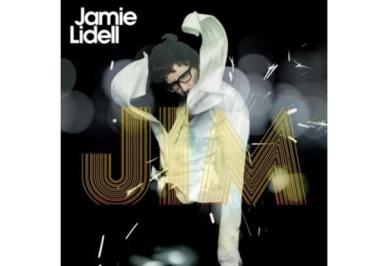JIM
(Warp)
If you’re one of those sad sacks who just can’t accept the reality of white soul—Hall & Oates, Thicke, Amy Winehouse—then you might as well pass on Jamie Lidell. Your loss. I’ll admit Lidell isn’t Sam Cooke or any of the classic soul artists he studies, but he emulates that same gospel-tinged sound, complete with exuberant hand-clapping and falsetto gasps. This gets old in uninterrupted stretches. Lidell is most likeable when he breaks the mold with a giddy electro-funk-pop mash-up like “Hurricane.”
—John Adamian
Come Up Full
(Red House)
The term “emerging artist” is often (mis)applied to Meg Hutchinson, mostly because her Red House debut Come Up Full has received overdue airplay and notice. But it’s actually her fifth album, which partly explains why she has the moxie to tackle topics such as living in a warrior culture that disrespects its own creations, the gap between sugar-coated romance and hard-bitten reality, or the hollowness of the American Dream. And it explains how she can turn on a dime and be as sweet and optimistic as a doe-eyed teen. Hutchinson’s mature writing and seasoned sound evokes the edgy hipness of Lucy Kaplansky and the folk-country honesty of Kris Delmhorst without being derivative. Catch Hutchinson at the Guthrie Center in Great Barrington on June 20.
—Rob Weir
We Won’t Change Our Style
(Dirty Water)
And why should they change their style? After all, the Hollywood Sinners play down and dirty garage punk, raw and rude, just the way it should be, with legendary trash rock guru/producer Mike Mariconda bringing out just the right amount of raunch in their sound. This is the type of stuff that was made to be played loud in some dingy club or someone’s dank basement. It’s live and electric and full of snotty, antisocial charm. This is the real deal: timeless punk rock. So beware, or be square.
—Thomas Pizzola
Rabbit Habits
(Anti-)
The cover of Man Man’s latest depicts a cross-sectioned house with many rooms, each filled with people in ecstasy, malaise, or despair, most unaware that their domicile is going up in flames. The experimental rock songs within veer wildly from absurdist, psychedelic, Beefheart barnstormers to boozy, Waitsian cabaret numbers. The music is urgent and schizophrenic, enhanced by an eclectic collection of instrumentation. Just as interesting is how they credit the instrumentation, with terms like Funereal Guitar, Glow Worm Throat, Snake Wrangling, and Vibe Tingling. Rabbit Habits, the group’s third effort, elevates them from performance artists—theatrical live shows were previously their main claim to fame—to recording artists.
—Matthew Dube



